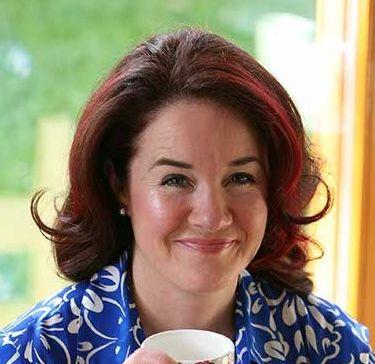The quickest way to shortcut your growth and learning process is to find good models. If you are serious about winning more business from your competitors and filling your venue with more profitable business, consider joining MPI’s new Venue Sales Certificate Program with Ciara Feely. In it, she walks your team through how to adapt their sales approach, just like the three steps outlined in this article, and win more meeting and event business. The program is delivered 100 percent online over the course of a few weeks, beginning July 24.
Buyers have changed the way they buy—have you changed the way you sell? If not, your team’s chances for success in winning the right business for your property will be weakened.
The power to achieve the results you want in terms of RevPAR, ADR, meeting/guest room occupancy and, ultimately, profitability is driven by you and your team’s ability to lead the client to want to work with you. Teams must adapt their sales process to be “client centric” and reflect the experience the client needs that’s going to help them to buy.
A big problem I see in this industry is that sales teams are selling the same way they were two to three years ago. I would go so far as to say that venues are selling the wrong thing. Let me explain.
The buyer doesn’t want a conference room or guest room, they want to be better off after doing business with you. Most hotels and venues are selling the hotel itself, the conference room or great service/location (features and benefits), whereas the planner is buying so much more than that.
It’s essential to meet the client at their level and have the conversation that they want to have. This takes stepping back from your viewpoint and seeing and understanding theirs. I have seen a salesperson make a shift in the way that they talk about their venue that helped them generate $300,000 of business within weeks. They are selling the exact same hotel/venue—just speaking about it from the client’s perspective.
I know from my days in hotel sales that it is very hard to take a look at your property from the client’s perspective. I just hadn’t developed that “eye.” While I had great sales training and great mentors in the industry, I was always taught to sell from the hotel point of view. When I became the client 10 years ago, I saw immediately how I could have made life a lot easier for myself and sold even more.
What I have learned through being the client is that to be really successful in sales you have to be clear on the problems you solve and the results you deliver, because that is all the client cares about.
The first three steps of my Steps to WIN™ system—which is a formula for how the buyer wants to buy—are the basis of MPI’s new Venue Sales Certificate Program that starts this month. Let’s take a look at these steps and how they can help you.
Step 1: Stand Out & Sound Different - How to Be of Interest to the Client
Craft a compelling, desirable message that makes your target corporate and association client excited to talk to you. Buyers don’t trust traditional sales messages anymore.
An effective sales pitch really should be about opening the conversation, not closing the deal. Buyers won’t even entertain a conversation with a salesperson until they feel a certain level of trust and confidence. Build trust and confidence by your team changing how they approach this market.
Heather is a client of mine and a director of sales for six hotels. She was chasing a corporate client for three years, each year filling out the meetings RFP and winning none of the business. We worked on changing two things: 1) her pitch and the way she approached the client and 2) her proposal.
She won 75 percent of the client’s business for that year. It was only when she got feedback on what to change in her approach so that it was more interesting to her client that she started to win the more difficult pieces of business she’d lost out on for years. An effective pitch talks about what the client wants to talk about, and that isn’t your property.
It’s time to stop being seen as a supplier. Being a partner is a lot more lucrative.
Step 2: Build Powerful Sales Tools to Make the Competition Irrelevant
Sixty percent of the decision to buy or not can be made before the client even speaks to your sales team. Powerful Sales Tools help decision makers say yes, and they use them every day to judge your hotel’s suitability.
Your team has to sound different to everyone else by building Powerful Sales Tools, standing out and establishing trust quicker. These tools have to be built from the point of view of the client to work.
The right Power Sales Tools will attract the right clients—the ones that are easier to convert. In the MPI Venue Sales Certificate Program we will work on sales tools such as gathering social proof, what to send with a proposal, floor plans and getting the B2B tone and messaging right. Potential clients use these sales tools to help them make decisions every day.
Step 3: Write Proposals that Win & Turn Prospects to Profits
The quickest way to impact sales is to create an effective proposal—one that will win.
It can take 45 minutes to respond to an RFP or create a proposal. According to MPI data, there is an 87 percent decrease in the RFP closing ratio from just five years ago due to RFP technology and attracting the wrong clients. What that means for you is that the team can spend 50 hours before booking their first meeting.
There are three big mistakes out there in the industry right now when it comes to proposals.
1. They are all about the property when they should be all about the client.
2. The information is not presented in the right order so the client’s attention moves to the rate.
3. They are not personalized and don’t demonstrate flexibility for the client.
A lot of sales directors say they are happy with their proposal—perhaps they recently invested in new eRFP technology or got it redesigned. When I read it, I see that 90 percent of it is all about the hotel or venue. Once you write proposals from the client’s perspective, everything changes.
It is harder and harder to get a conversation with a prospective buyer—you really have to earn it and do something different.
The better-quality questions you ask, the better-quality answers you get.



